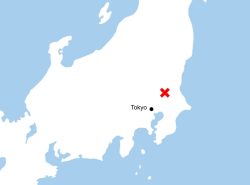
The Health, Labor and Welfare Ministry
13:27 JST, January 22, 2024
TOKYO (Jiji Press) — Japan’s welfare ministry on Monday presented to a related panel a fiscal 2024 draft revision of nursing care fees paid to nursing service providers, which features measures to help sustain pay hikes for care workers.
The ministry plans to effectively raise the amount of extra fees that are used to raise pay for care workers, and unify the three existing types of extra fees into one, in a move to encourage more nursing service providers to receive the extra fees.
The ministry hopes that the measures will lead to pay-scale hikes of 2.5% in fiscal 2024 and 2.0% in fiscal 2025. The draft revision was submitted to and approved by a subgroup of the Social Security Council, which advises the welfare minister. The nursing care fees are reviewed every three years in principle.
Under its draft budget for the fiscal year starting in April, the government has decided to raise the total fees to be paid to nursing service providers under the country’s nursing insurance program by 1.59%, of which a 0.98% increase will be used to pay more to care workers.
To better treat dementia patients, the ministry plans to increase fees paid to nursing care facility operators that are working to prevent and quickly respond to behavioral and psychological symptoms of dementia by deploying specially trained staff.
Fees will also be increased for operators that provide team-based care where many health professionals work together to tackle dementia symptoms, including wandering and depression.
As a precaution against disasters and the spread of infectious diseases, the ministry will oblige special nursing homes and geriatric health care facilities to build cooperation with medical institutions that would respond to sudden changes in the condition of residents.
In order to curb the cost of nursing care, the ministry plans to introduce out-of-pocket expenses for the use of shared rooms at geriatric health care facilities and integrated facilities for medical and long-term care.
On the other hand, the ministry will reduce the burden on care service users by allowing them to buy some welfare equipment that can only be borrowed in principle at present under the nursing insurance program. They include walkers and canes, which would be cheaper to purchase than to rent for a long period of time.
"Politics" POPULAR ARTICLE
-

Japan to Support Central Asian Logistics Route That Bypasses Russia, Plan to Be Part of Upcoming Summit in Tokyo
-

Japan to Tighten Screening of Foreigners’ Residential Status by Providing Information of Nonpayment of Taxes
-

Takaichi Cabinet Approval Holds at 72% as Voters Back Aggressive Fiscal Stimulus, Child Benefits
-

Chinese, Russian Bombers Flew Unusual Path by Heading Toward Tokyo; Move Likely Meant to Intimidate Japan
-

Takaichi Meets Many World Leaders at G20 Debut in Johannesburg; Speaks with Heads of Countries Including Italy, U.K., Germany, India
JN ACCESS RANKING
-

Keidanren Chairman Yoshinobu Tsutsui Visits Kashiwazaki-Kariwa Nuclear Power Plant; Inspects New Emergency Safety System
-

Imports of Rare Earths from China Facing Delays, May Be Caused by Deterioration of Japan-China Relations
-

University of Tokyo Professor Discusses Japanese Economic Security in Interview Ahead of Forum
-

Japan Pulls out of Vietnam Nuclear Project, Complicating Hanoi’s Power Plans
-

Govt Aims to Expand NISA Program Lineup, Abolish Age Restriction
























